Check out some books by your tutor Fiona Veitch Smith … (click on the book covers to find out more)
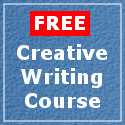 Hello everyone, welcome to the first session of our free online creative writing course. Over the next eight sessions we will be looking at different aspects of creative writing and trying our hand at various forms. I’d strongly encourage you to have a go at the exercises along the way, and please feel free to leave comments or ask questions at the end. If you have arrived on this page without first reading the home page and frequently asked questions page (on tab above) please go back and do so now. If you have read them, enjoy the course!
Hello everyone, welcome to the first session of our free online creative writing course. Over the next eight sessions we will be looking at different aspects of creative writing and trying our hand at various forms. I’d strongly encourage you to have a go at the exercises along the way, and please feel free to leave comments or ask questions at the end. If you have arrived on this page without first reading the home page and frequently asked questions page (on tab above) please go back and do so now. If you have read them, enjoy the course!
Creativity and Art
What is creativity? The Collins dictionary defines it as ‘the ability to cause something to exist’. Without getting into too much of an existential discussion, I would say that with every thought that is expressed, something has been created. It was Descartes who said: ‘I think, therefore I am’; well I would add, ‘I think, therefore I create’ (do you feel a God complex coming on?). But how do we express our thoughts? Sometimes we do it verbally, other times by body language and still again through what is loosely termed ‘art’.
Art takes place when a thought is expressed and fixed in a way that other people may experience it on an aesthetic level – through music, writing, painting, sculpture, choreography and so on. Many artists say that their best work takes place when they ‘by-pass’ the thought and simply express the feeling. This may be true, but for writers, who use a verbal medium, a feeling must first be converted into a thought before it can be put into words. Don’t over analyse the thought before you express it, as this way you can ‘channel’ the purest interpretation of the feeling, but some cognitive process needs to take place. Some writers prefer to mull over a thought and give it form before they put pen to paper – I’m one of them – but it’s good practice to try and switch off the ‘editor’ at least for the first draft. First response trigger exercises are useful in this regard and can release some unexpected words and images.
Exercise 1:
Write down your first response to these words or phrases:
- Blue ball
- And that’s when the sadness came
- Coffee
The first task of a good writer is to convert feelings into thoughts and then into words. This is the raw material that can then be converted into something more permanent. Some writers refuse to toy with their first drafts, believing their creativity will be diluted; I disagree. Allowing your critical mind to improve a piece of writing is where the craftsman meets the artist. Something produced only by the former will lack soul and something by the latter will lack form. Good writing is a combination of art and craft.
For public consumption
Art, of course, is highly subjective and one woman’s masterpiece is another woman’s unmade bed. We all have the ability to create, but whether or not our creation is ‘art’ must be left to the eye or ear of the beholder.
In this session we will look at how you can craft those creative thoughts into creative writing to share with other people. And that’s what sets ‘public’ writing apart from ‘private’ scribblings – there’s a perceived readership in mind. When I ramble on in my journal, I am the only one who will read it (hopefully!) so my only concern is getting my thoughts down on paper. The moment I want someone else to read it I begin to consider ways to improve the presentation and craft it into something more aesthetically pleasing. I consider which words may sound more colourful, whether or not my sentence structure is grammatically correct, whether I’m using evocative imagery, and so on.
Story, feeling or image?
What is it about those creative thoughts that you think might be of interest to other people? Do they speak of an eternal truth or a common experience? Do they make you laugh or cry? Do they suggest a story that will entertain or a poem that captures a moment that must be shared?
Exercise 2: In 50 words or less write down why you want to write then list three creative thoughts that you’ve had lately (each 10 words or less). These may be an image, a musing, a ‘truth’, a story, or so on. If you haven’t had any, take yourself for a walk and look around; what grabs your imagination? Browse through a newspaper or a magazine; do any stories or pictures catch your attention? Think back over your day; did anything funny, charming, shocking or unusual happen to you or someone you know?
Poetry or prose?
Some people are more suited to writing poetry than prose and some people do well at both. Although we won’t be discussing it in this course, other people are more suited to script. I’m one of them. I’ve had relative success as a prose writer and in fact have managed to earn a living from it, but it’s taken years of hard work to get to this point. I recently branched out into scriptwriting and found that I had much more of a natural ability. (If you’re interested in finding out more about scriptwriting, check out getting started in playwrighting). You may find that you’ve been trying to make it as a poet when actually you’re more suited to prose. Now I don’t want to pigeonhole anyone, but ask yourself the following questions:
- Are you more attracted to films than stills?
- Do you enjoy telling people ‘stories’ from your life?
- Do you prefer to read stories or poems?
If yes, to these, then you may be more suited to prose than poetry. If no, then the opposite may be true. If it’s ‘sometimes yes, sometimes no’ then perhaps you are suited to both. We shall be looking at how to write poems in more detail in session 7, but suffice to say, a poem is like a snapshot of a moment. If you can’t rest until you know what happened before and after, then prose may be your genre.
Exercise 3: Take one of the three creative thoughts you wrote down in Exercise 2, then list 20 separate words that communicate or describe that thought. Do not, at this stage, link the words into sentences. Once you have your 20 words use them in a poem of 16 lines or less. Then, take the same 20 words and work them into a short story of under 300 words. Which exercise came more easily? Which form has best communicated your creative thought?
Further Resources:
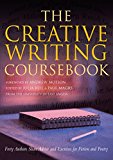
There are some excellent resources out there for creative writers. To get quick ‘starter’ images when your own well is dry I recommend The Writer’s Block by Jason Rekulak. I’m currently working through The Creative Writing Coursebook by Julia Bell and Paul Magrs and finding it very useful.
The next creative writing course session is how to write a short story. But before you move on to that, please feel free to leave a comment or ask a question in the box below.
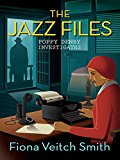
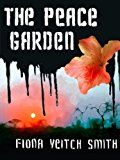
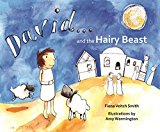
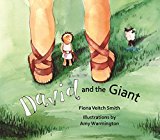
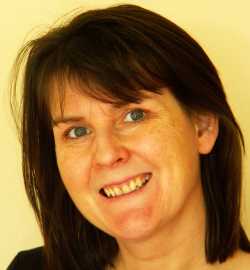 Welcome to The Crafty Writer's free online creative writing course, presented by Fiona Veitch Smith, a freelance journalist, editor, author, playwright, screenwriter and writing teacher. I hope that you'll see a dramatic improvement in the quality of your writing as you work through this course.
Welcome to The Crafty Writer's free online creative writing course, presented by Fiona Veitch Smith, a freelance journalist, editor, author, playwright, screenwriter and writing teacher. I hope that you'll see a dramatic improvement in the quality of your writing as you work through this course.
So glad to have found this course. It is amazing. I have found out that I work better with short stories and want to etch myself comfortably into that genre. Sometimes I have a powerful start, sustain the tempo, then struggle with the ending. I just want to say thank you for this, no questions yet. I am already certain the course will speak to the areas I seek to develop. Thank you!
Thanks for the well needed, and well appreciated pointers Fiona.I feel like my creative juices are flowing like a waterfall.
Thank you for creating this online course. I am having fun with it.
I’m so excited I found your website!!! After completing the first lesson, I have a nearly complete poem that I am thrilled with, and the beginning of short story that I never would have thought of writing. Poems and short stories are not something I’ve ever tried before, thinking I preferred novel length stories. This may help me to branch out. Thanks so much for offering this helpful, exciting opportunity.
Im in love for this, When i was in my 20′s i started ro Waiting, but, i stoped! This course is helping me to come back to the writining world!
Hello I have started the course and find that I makes me think before starting the writing maybe gives me a process.
I have a few items of work that mean a lot to me.
Looking forward to next part.
Blessings
Grace
I enjoy your course a lot. I love your exercises. Thanks to you I wrote a pretty poem. I will continue following your instructions in each step of my writing.
Thank you so much for making this course available on line. I have a full time job and live far from most centers of learning, so doing this at my own pace is exactly what I was looking for.
I enjoyed the exercises! Gave me a chance to refresh and get my flow back. I am excited to see what else this “class” has to offer.
I came across your site while Iwas looking for a free online course in writing.I started the exercises and I must say it is laid out simply.
Thanks you very much for sharing.
Feeling inspired .
Thank you
These exercises are brilliant. I used to write a lot when I was younger. This will help me get back in to a regular writing routine I’m sure.
First step of imagination crafted on papers..
I usually write comedy skits for shows I do locally, I find I have to change subjects a lot or I just end up going over same jokes again and again….I want to write a childrens book, Maybe about a pet who is full of mischief but also funny, So doing this course I hope will give me ideas how to start and create a character in my head that I can put on paper
Thank you for this challenge. I have been collaborating with another writer, much more experienced than me. After all these years (still crazy)I am 71 and I find I enjoy creating something again.
Thank you for uploading this course. I have found the first few exercises succinct yet useful.
I felt this first exercise was very enjoyable. I felt that I had a difficult time coming up with a poem in exercise three, but writing the story came so much easier.
I am hopeful that this course will help me to express myself more clearly and effectively. I see others express themselves in this way, and that is what I want.
Thank you. This was a great start. I have been procrastinating for way to long. I often need a little push and the simple exercises ‘forced’ me to write something at least. I was pleasantly surprised at how the poetry came easier to me than the prose. But, hey, I’m not ready to box myself. I look forward to the rest of the course.
Can’t wait to apply some of these exercises to what I am trying to write.
Julie
great advice